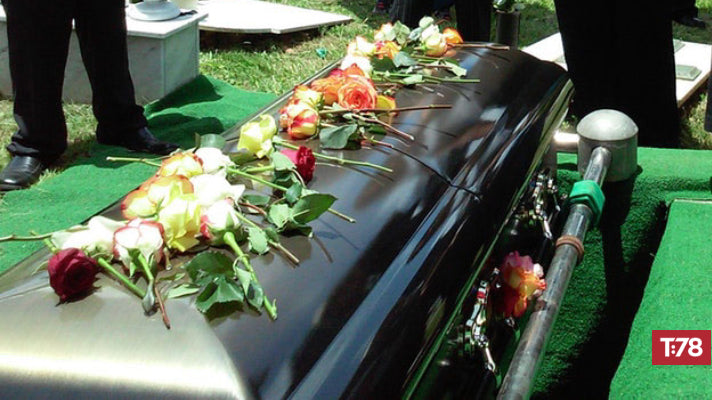Are you telling your children the truth about death? How you answer their questions about death, and how you bring up truths about death that our culture avoids, are critical to how your children will value life in Christ.
This past September, my Grandmother died. She was 97 and had enjoyed a fruitful life. She became a Christian as a young mother and had no greater joy than seeing her children, grandchildren, great grandchildren walking in the truth. Her funeral was a wonderful celebration of her life and an assurance of her hope for heaven.
But in the days since the funeral, I recognized something was missing—something that I and my children needed—more honesty about death. A week after the funeral, I heard Matthew McCullough share a message drawn from his new book Remember Death.(McCullough is the pastor of Trinity Church in Nashville, Tennessee, a church that teaches the Truth78 curriculum.)
McCullough observed that in funerals we often focus on celebrating the life of those we love who have died and talk about our hope of seeing believers again in heaven, but too often we’re not honest about how awful death is and what it did to this person who was precious to us.
“I think there's this tendency to jump, especially with kids, towards a resolution that bypasses some of the pain that we're supposed to be honest about and to feel,” McCullough shared in a phone interview. “I try not to minimize the pain in death by just talking about heaven. I want to live in the nowand to feel the not yet, that death is still an enemy that we're waiting to see crushed.”
McCullough is also concerned that the culture around us relegates death to an end-of-life problem when, as he says, “in reality, according to wisdom literature of the Bible, death is an everyday, all-of-life problem because of the way it affects everything we touch.” He stresses that children are going to experience death and its symptoms one way or the other, but if we don't talk to them about it, they won't know what they're experiencing or what to do with it.
He helps his kids see the reality of death as an everyday problem by talking about how pleasures fade. He tells them that the inheritance we're promised in 1 Peter 1 is imperishable, undefiled, and unfading but there's nothing like that in his life right now and not in theirs either. As an example, he encouraged his family to reflect on how a recent vacation they enjoyed together didn’t last. “It was just a sweet precious time, but when it was over, they felt that. It hurt them. And it gave us a chance to talk about the sweetness of joy, but the fact that in this life joys fade and end, but in heaven they won't.”
McCullough wants his children to know about death as an-all-of-life problem in order to impress on them that Jesus is their only hope in life and in death. “I want my children to fully engage with the goodness of this world. I want them enjoying God's gifts, whatever He gives them, for as long as He gives them,” he says. “But if their heart is placed on those treasures, their heart is going to get broken over and over and over again. So what I want to do is try to help them see that the good things we have now are God's gifts, but only foretastes of what He's promised to give those who trust Christ forever.“
A significant theme in Remember Death is that honesty about death brings hope to life. Be encouraged that answering your children’s questions about death—and taking the initiative to teach them about death—from the truths of Scripture, is not morbid but a means for giving them an unshakable hope.
For further reading:
- "How Should We Teach Children About Death and Eternal Life?" by John Piper
- "5 Ways to Talk to Your Children About Death" by Jeff Robinson







